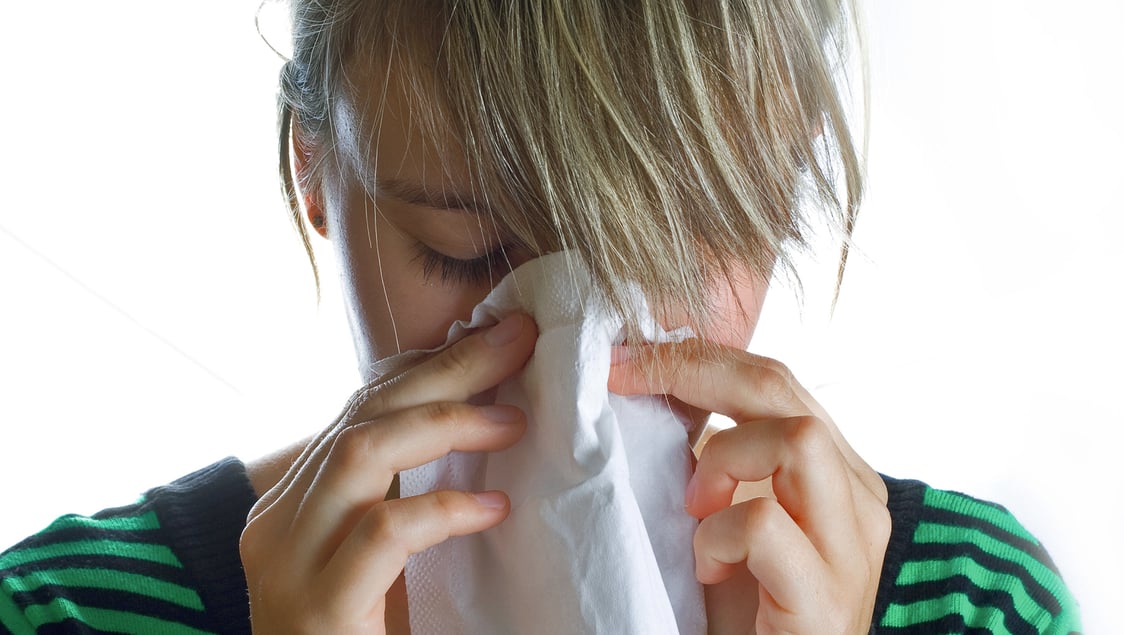
Issue 053
August 2009
I’m training for a fight in a couple of weeks, but I think I’m starting to come down with a cold. Should I take time off training, or would I be better off to keep going and sweat it out?
Fighters are naturally reluctant to take time off training. It can be tempting to try and work through the illness, but there are a few important things to bear in mind:
- There’s a risk of infecting other teammates.
- Intense training can suppress the immune system, and it may prolong the illness.
- Even very minor viral infections can affect your performance, and may continue to do so for several days after you feel better.
- There are anecdotal reports of chronic fatigue, heart problems and even sudden death occurring in athletes who train during certain viral illnesses.
Ideally, an athlete should rest during the illness and go back to training a few days after they feel better. If there is extreme tiredness, achy muscles or swollen glands, then the advice is to take at least a month off from full training.
If this is impractical, then use the ‘neck check’. If your symptoms are above the neck – runny nose, sneezing, or sore throat – but you otherwise feel okay, then you can train cautiously at half speed. If after a few minutes you start to feel better and the congestion clears, you can gradually increase the pace.
If you have symptoms below the neck though, such as fever, aching muscles, chesty cough, vomiting or diarrhea – then you should avoid training.
Is there anything I can do to reduce my chances of getting ill?
Eating a good and balanced diet, getting enough rest and avoiding overtraining are all important. Wash your hands regularly, and avoid sharing water bottles at all times!
If you do start feeling sick, you should reduce your training for a day or two. This may be the last thing you want to do with a fight coming up, but it can reduce your chances of getting the full illness.
Many people believe that taking large amounts of vitamin C will help stop them getting sick, or help to get rid of a cold faster, although at present there’s not much evidence to support this.
What’s the difference between a cold and the flu?
The flu is a totally different and much more severe illness than the common cold, and can be fatal in vulnerable people. It tends to be associated with a high fever, headache, muscle aches, weakness and a loss of appetite. If you are concerned about your symptoms, then consult your doctor.
What’s the big deal with this ‘swine flu’? How is it different from ordinary flu?
Swine flu is a form of flu that originated in pigs. There seems to be a recently mutated form of the virus that can spread more easily from one person to another, which has caused concern that we may be on the verge of a worldwide pandemic. These outbreaks happen naturally from time to time; the last one was in 1968. Pandemic flu is usually more virulent than ordinary seasonal flu and more likely to be fatal, especially in young, previously healthy adults.
Should I get a flu vaccination just in case?
At the moment, a flu jab won’t protect you against swine flu, because it’s a new form of the virus. However, it’s still something that’s worth considering if you’re training intensely and want to reduce your chances of getting ill before a competition.
Professional fighter Dr Rosi Sexton PhD is a sports therapist and osteopath-in-training based in Manchester, England. She has fought in countries such as Russia, Canada, and the USA, and is ranked as one of the top competitors in her weight class. For more information go to www.rosisexton.wordpress.com
...









